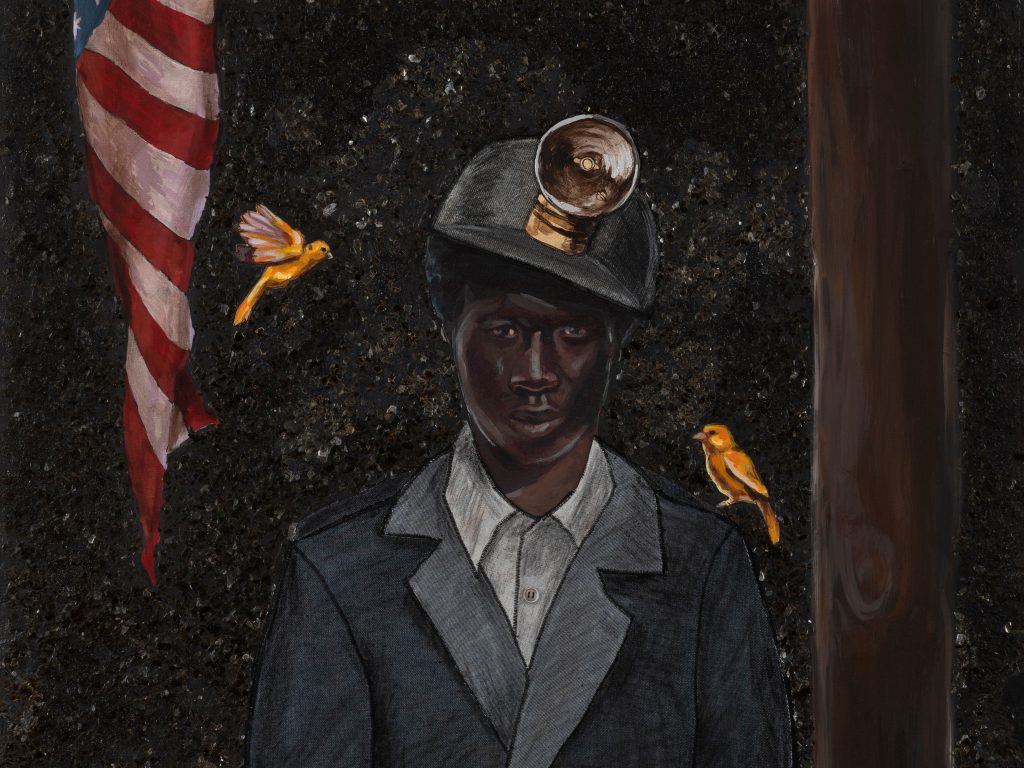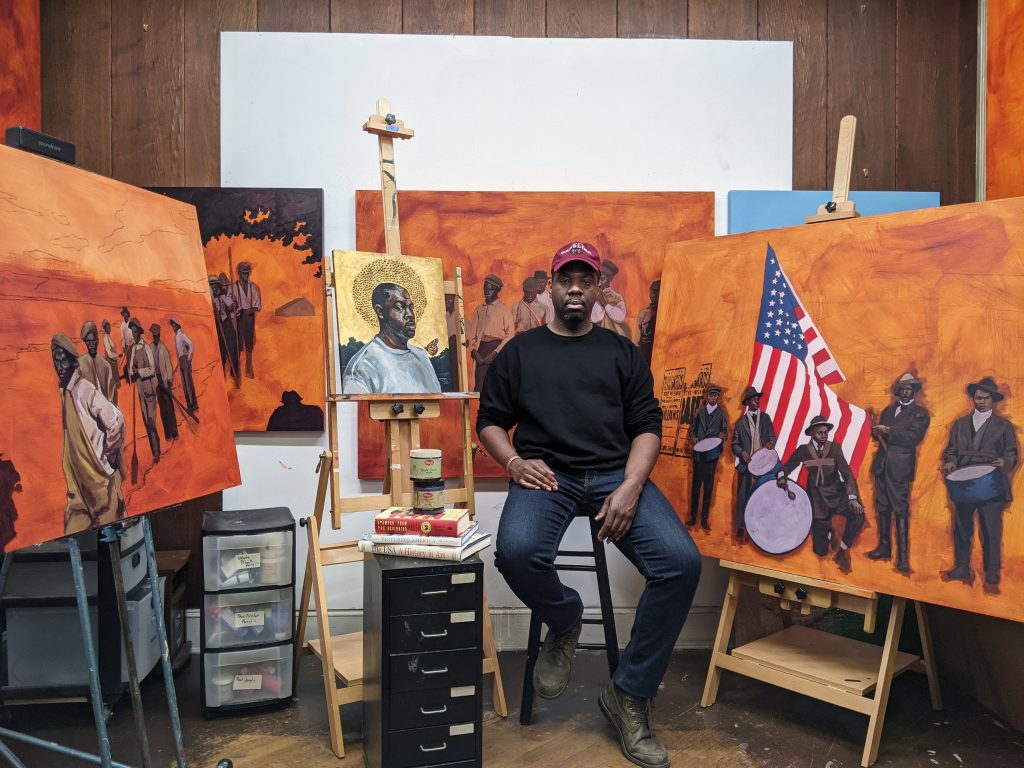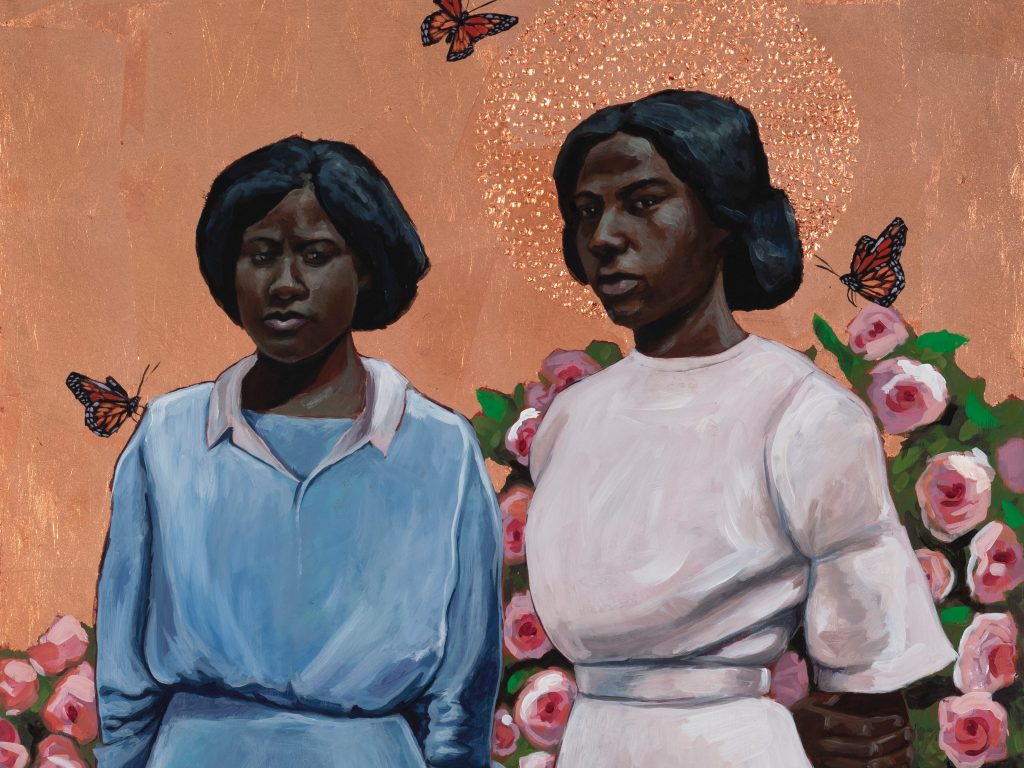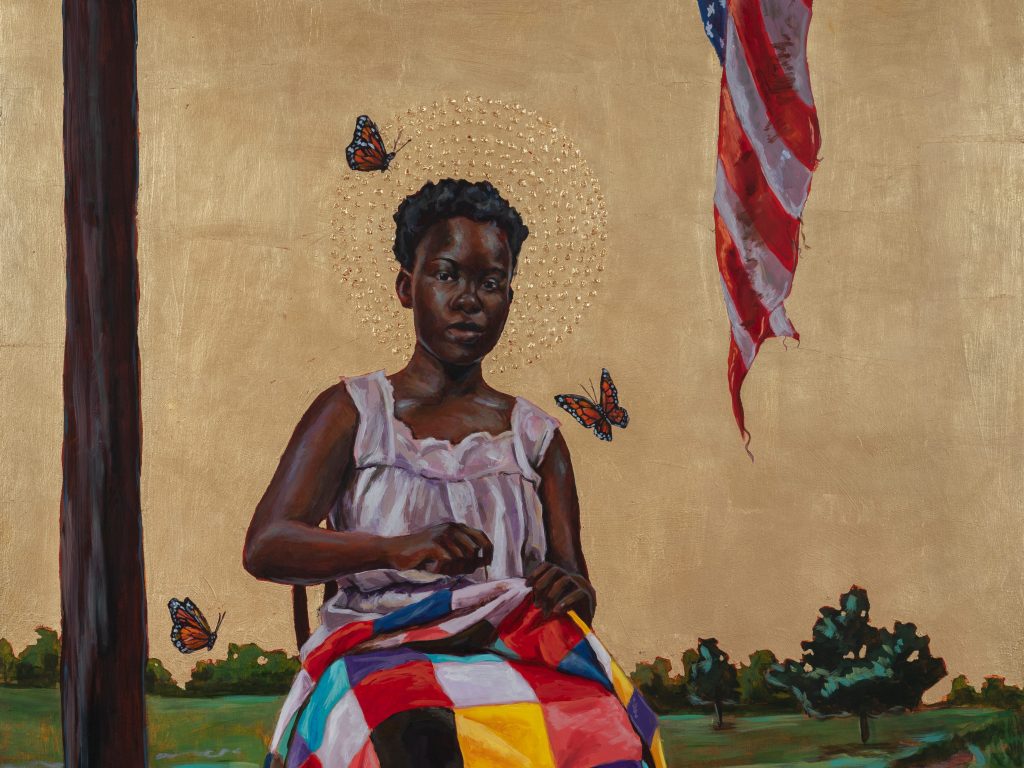- "Declaration & Resistance" depicts the role Black folks have played in building the US economy.
- The exhibit is showing at the Westmoreland Museum of American Art through May 8th.
- Artist Stephen Towns offers collections highlighting coal miners, military workers, and nurses.
Black labor built America.
From the cultivation of cash crops to the building of railways and the excavation of coal mines, the infrastructure and economy of the United States were propped up by the labor of enslaved Black people. Without them, the US would not have been able to secure the foundational wealth that propelled it to become the global economic power it is today.
Currently on view at the Westmoreland Museum of American Art in Greensburg, Pennsylvania, "Stephen Towns: Declaration & Resistance," depicts enslaved and freed laborers as a backdrop to highlight the role African Americans have played in building the US economy.
In the exhibit, Towns explore such industries as coal mining, agriculture, and domestic labor. "I come from a long line of laborers in Georgia and South Carolina," Towns said in a press release. "Prior to being a full-time artist, I also worked many laborious jobs. This show is a testament to my ancestors and also the coworkers I have befriended along the way." The exhibition includes more than 30 new figurative paintings and story quilts along with pieces from Town's existing catalog.

For centuries, enslaved Black people were arguably America's most valuable financial asset. Towns' paintings call attention to the hidden figures who helped shape America.
Organized by curator Kilolo Luckett in collaboration with Towns, six distinctive mixed-media paintings in "Declaration & Resistance" highlight the Black coal miners of West Virginia who were relegated to the most difficult, most dangerous, underpaid, and insecure jobs.
"Through his beautifully imposing quilts and mixed-media paintings, Stephen offers viewers sobering truths and tender stories of Black life that break away from dominant narratives that continue to plague society in the United States of America," Luckett said.

According to the Westmorland's website, Towns "foregrounds the stories of Black military workers, often frontline service people, who put their country first, which is the ultimate form of patriotism." The exhibit also references professional care fields, such as nursing — a theme Towns felt was essential to pursue as he created new work during the pandemic.
"Much of the work in 'Declaration & Resistance' began when I was quarantining in the spring of 2020," Towns said. "I thought about how I had the privilege to take a step away from my work. When I returned to my studio, I reflected on how I had gained a deeper appreciation for essential workers risking their lives in the midst of a global health crisis."

